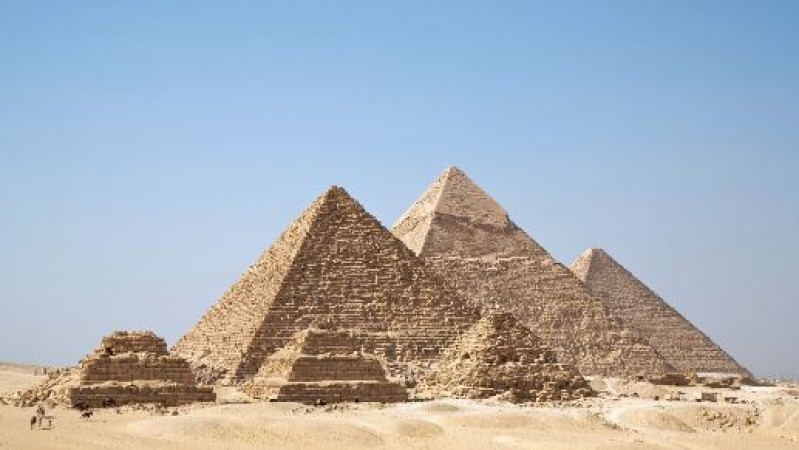
Egypt, the land of ancient wonders and modern marvels, holds a unique place in the world's history. Located in northeastern Africa, it is bordered by the Mediterranean Sea to the north and the Red Sea to the east. Enigmatic and beguiling, Egypt's rich cultural heritage, awe-inspiring monuments, and timeless mysteries have fascinated adventurers, scholars, and travelers for millennia. In this article, we embark on a captivating journey through Egypt's illustrious past, exploring its ancient civilization, monumental achievements, and enduring cultural contributions.
Ancient Egypt: The Birthplace of Civilization
Ancient Egypt emerged around 3100 BCE when the lands of Upper and Lower Egypt united under the first Pharaoh, King Narmer. This unification marked the beginning of a civilization that would endure for over three millennia. The Nile River, flowing through the heart of Egypt, played a central role in shaping the country's culture and prosperity. Its annual flooding enriched the fertile soil, allowing for bountiful agriculture and sustainable communities.
The achievements of ancient Egypt are nothing short of extraordinary. The construction of the Great Pyramids at Giza remains one of the most enduring mysteries in human history. These colossal tombs were built to house the bodies of pharaohs and preserve their journey to the afterlife. The Great Pyramid of Khufu, the largest of the three, stands as a testament to the ingenuity and engineering prowess of the ancient Egyptians.
Religion and Beliefs
Religion held a paramount position in ancient Egyptian society. Their beliefs centered on a pantheon of gods and goddesses who governed various aspects of life. Ra, the sun god, was considered the creator and the most significant deity. Other deities included Osiris, the god of the afterlife, and Isis, the goddess of motherhood and magic. Egyptians believed in an afterlife and dedicated immense efforts to ensure a smooth transition from this world to the next. Elaborate burial practices, mummification, and the construction of lavish tombs and pyramids demonstrate their profound reverence for the journey beyond death.
ALSO READ:Iraq : A Tale of Struggles, Resilience, and Hope
Hieroglyphics and Literature
The ancient Egyptians developed one of the earliest known writing systems, known as hieroglyphics. This complex script was a combination of ideograms and phonetic signs, carved on stone walls, tombs, and papyrus scrolls. Hieroglyphics allowed the preservation of their history, literature, and religious texts, providing modern scholars with invaluable insights into their civilization. The famous Egyptian Book of the Dead, a collection of spells and rituals, provided guidance for the deceased in their journey through the afterlife. It is a masterpiece of religious and philosophical thought, underscoring the profound spiritual beliefs of the ancient Egyptians.
The Decline and Rediscovery
Despite its remarkable achievements, ancient Egypt faced various periods of decline and foreign domination. In the third century BCE, Alexander the Great's conquest of Egypt marked the beginning of the Ptolemaic dynasty. The arrival of the Romans followed, culminating in Egypt becoming a province of the Roman Empire.
In the seventh century CE, the Arab conquest of Egypt brought Islam to the region. Subsequently, the Fatimids, Ayyubids, and Mamluks established their dynasties, each leaving their mark on the nation's cultural tapestry. The modern rediscovery of ancient Egypt began in the 19th century with the work of archaeologists like Jean-François Champollion, who deciphered hieroglyphics, and Howard Carter, who unearthed the tomb of Tutankhamun. These discoveries sparked renewed global interest in Egypt's ancient heritage and contributed to the birth of Egyptology as a formal academic discipline.
Contemporary Egypt: Culture and Society
Modern Egypt stands as a vibrant and dynamic nation, blending its ancient roots with a diverse contemporary society. Cairo, the bustling capital, is a captivating mix of ancient monuments, lively markets, and cosmopolitan neighborhoods. The country's cultural heritage is celebrated through festivals, traditional music, and folklore. Egypt's contributions to art, literature, and cinema continue to influence the wider Arab world and beyond. The country's rich culinary traditions, which include dishes like koshari and falafel, are cherished worldwide.
Conclusion
Egypt remains an enigmatic and captivating land that continues to inspire wonder and awe. Its ancient civilization, built on the banks of the Nile, left an indelible mark on human history. From the majestic pyramids to the mysteries of hieroglyphics, Egypt's legacy endures through the ages. As a modern nation, Egypt embraces its past while forging a bright future, welcoming visitors from around the world to explore its captivating wonders and immerse themselves in its timeless charm.
What is a Staycation and How to Plan a Memorable One?
What is Adventure Tourism and Thrilling Activities to Try?
What is Glamping and How Does It Offer Luxurious Camping?